- Mahsa S. Y.
- information
- 23678 views
- 19 comments
- historical
Legends and religious narratives have always formed an essential part of the civilization and culture of different nations. Divine religions invite their followers to worship the only God. Perhaps the beliefs and rituals of God worship differ from the view of the name and the layout. Still, when we look at the essence of each of them, we see that all the messengers of those religions and the core of the content presented in their holy books encourage people to worship the only God and make the world a better place.
Here are complete answers to the questions like "What is Ahura Mazda?" "Which religion believes in Ahura Mazda?" "What is Ahura Mazda the god of?" "What does Ahura Mazda represent?" "Who is the Zoroastrianism God?" "Is Ahura Mazda Yahwa, Allah, or the Lord?" and so on. So stay with us in this article.
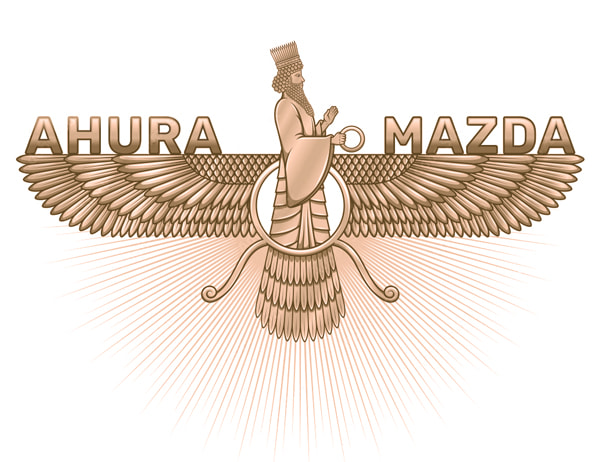
If you refer to the history of religions, you will find that the Zoroastrian is the first monotheistic religion without human rights abuses. Zarathustra introduced himself as a prophet sent by Ahura Mazda. He chose one among the ancient Aryans' many gods, presented it as the supreme God, and denied all multiple gods. Of course, Zoroaster did not create the word Ahura Mazda himself. Still, this word was familiar to the Aryans, just like the word "Allah" was expected of the Arabs.
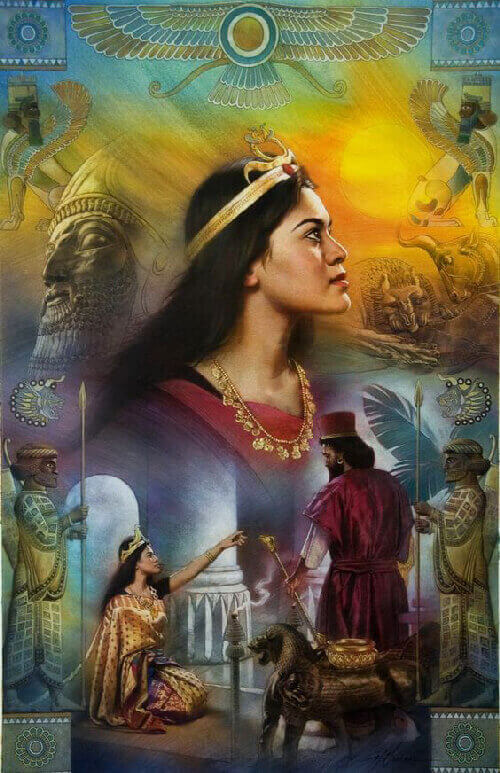
Who is Ahura Mazda?
One of the most essential and ancient divine rituals that had and still have very respected followers both in ancient Iran and contemporary Iran is "Mazdisna's ritual" or "Zoroaster." According to Zoroastrian teachings, Ahuramazda is the superior God, the creator of the heavens and the earth. He is very kind, has dominion over the open and hidden secrets, and has created every creature. According to Zoroastrians, this God makes beauty and goodness.
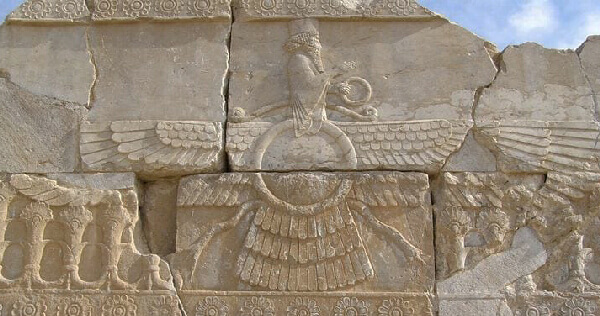
Ahura Mazda Meaning
The word "Ahuramazda" is a combination of the Indo-Iranian word "Ahura" and the Avestan word "Mazda," which means lord and wise in the Avesta book. This name is there in Pahlavi books and texts as "Ahormazd" and "Hormuz," and in the inscriptions of Achaemenid kings, the term "Aurmazdah" can be seen in attributes to this divine nature. This word is equivalent to "Zeus" and "Jupiter" in Greek and Roman mythology. In Persian cultures, it is translated as "Bergis and Zavash," meaning "Jupiter planet." The primary meaning of Ahuramazda is "Lord of the Wise." The name is attributed to the God of the ancient Iranians and Zoroastrians, the creator of the heavens and the earth. Until the God Mazda, the ancient Iranians did not believe a "God" could overcome all the works of nature and create everything.
Zoroaster, the prophet of the Zoroastrian religion, not only rejected other ancient gods and introduced Ahura Mazda as the only God of the world but also tried to promote and introduce him to the people of the world. Zoroastrian teachings make this lord the highest position in the world. The Zoroaster's brief lesson was that God is unique and the creator of everything who resides at the highest point of the universe.
On some of the ancient buildings in Iran, such as the Persepolis, images of Ahura Mazda are visible as petroglyphs.
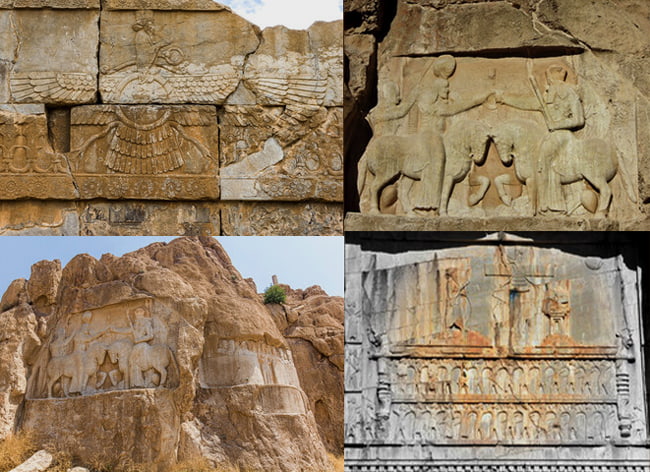
Cyrus Crafts; Luxury & Unique Products
Other Names of Ahura Mazda
"Ahuramazda" is a word derived from two separate words, "Ahura" and "Mazda," whose roots go back to the ancient Avesta language in the Gathas. In the Gathas, the combination of "Ahura Mazda" is sometimes used separately in the form of "Ahura" or "Mazda." Still, in the combination case, "Mazda Ahura" is commonly used too. Ahuramazda, this Parsi God's names are more than seventy in the Avesta, which we have sorted by the first letters. The Zoroastrianism god's names are:
- Ahura, Ahura Mazda, Ahuramazda, Aware, Awareness,
- Behind and the Shelter, the Beneficial, the Benefactor, the Benefactor of his Will
- The Best Leader, the Best Solution, the Best Truth
- The Conqueror, Creator, the Defeater, Eshun, Eshun Most
- Far From the Reach of the Enemy, Farhamand, the Great, Guardian, the Graceful
- Healer, the Holiest Minos, Invincible, the Judge, the Kind God who Respects Humans
- The Knower, the Leader, Mazda, the Mighty, the Most Knowledgeable
- The Most Powerful, Most Seer, the Non-Deceiver, the Nurturer
- Ohrmazd, the Only Creator, the Origin of Blessings, the Rememberer of Rewards
- The Source of Knowledge, the Spreader of All Goodness, the Strong
- Vahomana, Verjavand, Verjavandi, Wisdom, Wise, Wise lord
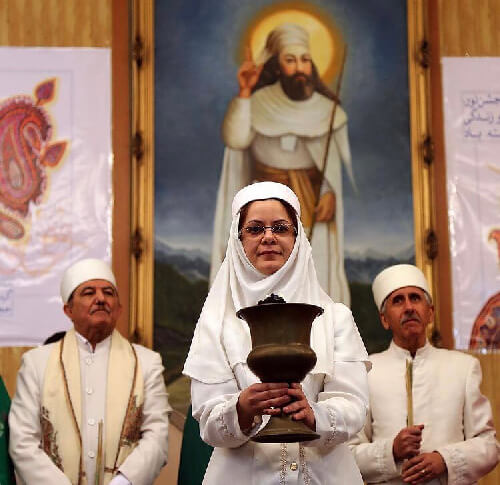
Ahura Mazda's Characteristics
Ahura Mazda is a wise, superior, and better God, the creator of all the world's creatures, the powerful, the Almighty, and the knower of hidden secrets. Finally, he is the God who is incomparable and kind. Ahuramazda is the creator of the world. Mazdaists worship Ahura Mazda. He is the creator and judge of all material and spiritual things, the creator of light and darkness, and the establisher of the order of existence (Esha).
He created everything by thinking, so he establishes from nothingness and is alone. There are about sixty good attributes of Ahura Mazda in Hormazd Yasht, and almost all good things are his fame.
Also, he has the following six outstanding attributes in Mazdasena: Sepenta Mino means the holiest soul, Khashtara Virneh in the modern dialect of Shahrivar means the ruler and the king who we should choose, and Sepenta Armiti means sacred piety. Hurtat, the old saying of Khordad, represents completeness, eloquence, and immortality. He is Ashe, which means truth, righteousness, divine law, and purity.
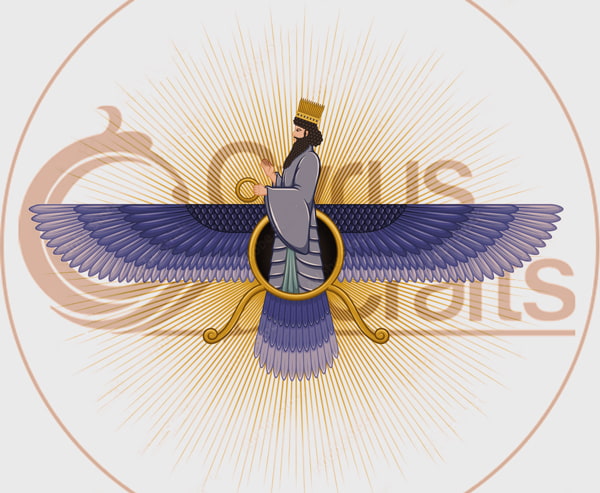
It is also Vahomana, which means good character. These attributes are called Amshaspandan in Mazdasna, and The foundations of perfection in Zoroastrian religion are endless to reach enlightenment. Seven cities of love, seven skies, seven steps of Esfandiar, seven steps of Rostam, seven Siins, seven countries, etc., are adapted from these seven poems.
Is Ahura Mazda Good or Evil?
According to the Bandashen book, Ahriman is the opposite force of Mazda God and the originator of evils. In the Zoroastrian or atheistic religion, Ahriman never has the inherent power to confront the power of Ahura Mazda and is not a rival to him; instead, Ahriman is the same evil thought as Angra Mino. Zoroastrians have ceremonies to pray Ahura Mazda with some attractive conventions.
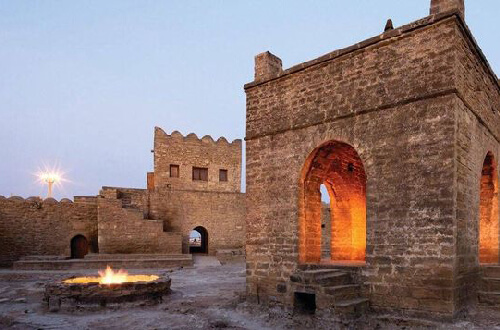
Ahuramazda VS. Ahriman
The world we live in is the confrontation between good and evil, from the opposition of positive and negative poles in the minor atomic scales to the conflict of different ideologies in the world arena and the battle of good and evil in stories. They have all extracted from the essence of our lives: the confrontation of good and devil. Small rituals exist where such an issue arises. The conflict between "Ahuramazda and Ahriman" is also this kind of struggle known as "Ahura Mazda and Angra Mainyu."
Zoroastrians say Ahura, the epitome of purity, has been involved in a massive battle with the devil since the beginning of the world. In Zoroastrianism, other names of Ahriman are "Angra Mino," "Angra Mainyu," "Mainyu," "Destructive Spirit," and "Destroying Spirit."
For this reason, some Iranian people worldwide wear accessories with the symbol of Ahuramazda, which is Faravahar, to show that they are on the side of Ahura Mazda against the Ahriman. You can see a Faravahar pendant in the related products of this article. If you would like to see Persian handmade accessories, you can visit them on our website.
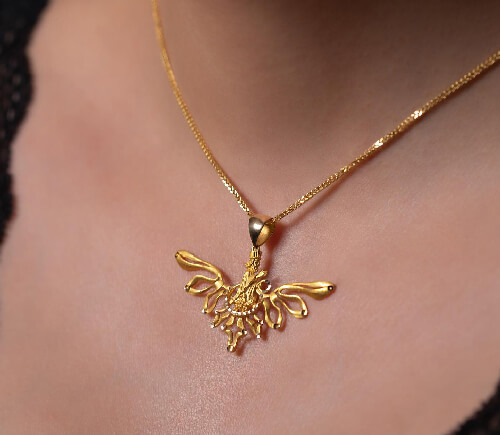
In the Zoroastrian or atheistic religion, Ahriman never has the inherent power to confront the power of the Mazda God and is not a rival to him. Ahuramazda and Ahriman are two co-born souls. However, Ahriman is a unique being who, after falling from his former position, has risen to confront Ahura Mazda and has been placed in the opposite part of the only Zoroastrian God. The battle between Ahriman and Ahura Mazda formed the basis of the mythology of Rostashti.
Unlike Ahuramazda, who encourages all beings to think good, speak good, and do good, Ahriman is on the opposite side. It promotes terrible thoughts, bad words, and evil deeds, all of which go under the banner of the word "Druj," which means to lie. Zoroastrians believe there is light and goodness in the end; Ahura Mazda wins the battle between good and evil and defeats the devil. Interstingly, some Zoroastrians believe that Ahura Mazda and Ahriman were the sons of Zurvan, the Persian God, before the birth of Zoroastrianism.
It may be interesting that numerous mythical creatures exist in Iran's mythology. Some of them work for good, and some for evil. For example, the mythical bird Simurgh, which we have discussed in detail in the Simurgh or Phoenix bird article, is a friendly mythical creature. However, the Manticore is one of the devil's mythical creatures.
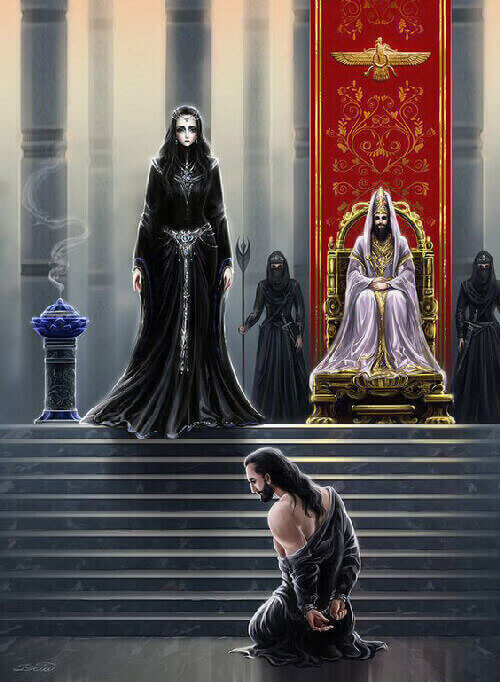
Ahura Mazda in other Religions
The religion of the Achaemenid kings is undoubtedly one of the most fascinating and, at the same time, the most controversial chapters in the history of ancient Iran. Still, except Zuroestrian, other religions believe in Ahura Mazda too.
Ahura Mazda in Hinduism and Indo Religion
In the past, Iranians and Indians formed a unified nation. Linguistic data in this regard are undeniable. Therefore, we can assume that the Aryan (or Indo-Iranian) religion was initially somewhat similar, and the separation of these people caused differences that gradually changed the common heritage. But this separation did not negate the conservative spirit. Hinduism and Zoroastrianism are known as ancient sister religions.
Ahura Mazda in Islam
Islam believes in only one God named Allah; in Islam, Muslims believe that Ahura Mazda and Allah are both the names of the unique God, the creator of the whole universe. Islam states that the Zuroestrian is not a religion of worshipping more than one God. The Only God of the world is whom the Zoroaster has named Ahura Mazda, and Muslims call him Allah. So, Ahura Mazda in Islam is exactly the same as GOD.
Ahura Mazda in the Bible
Jesus was the profit of the unique God. In the Bible, there is one God to worship: Christians call him the Lord or the God, and Zoroastrians call him Ahura Mazda; the Lord and Ahuramazda are actually the same Gods in the Bible.
Ahura Mazda and Yahweh
Jews believe that Ahura Mazda and Yahweh are definitely both the names of one God. Truthfully, Judaism is the other religion that believes in only one God for Creating the whole universe and worshipping it only; so, Jews know Ahura Mazda as Yahweh.
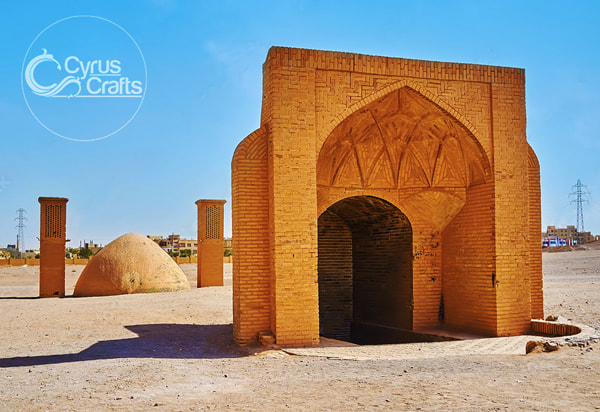
Interestingly, Mazda, the fabulous Japanese car company, has driven its name from the Persian God, according to the Mazda.com website.
Summation of AhuraMazda Introduction
You read a complete guide to the Zoroastrianism religion's God, Ahuramazda. We hope this article has fully introduced the unique Persian God. If you have an opinion about this blog post or want to share your information about Ahura Mazda with us, please write it in the comments. Moreover, if you are interested in Persian culture and civilization, surf our website to see Iranian handmade items.








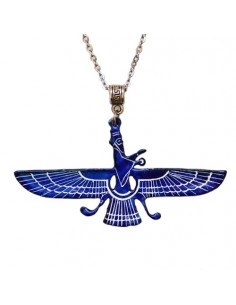

Comments (19)